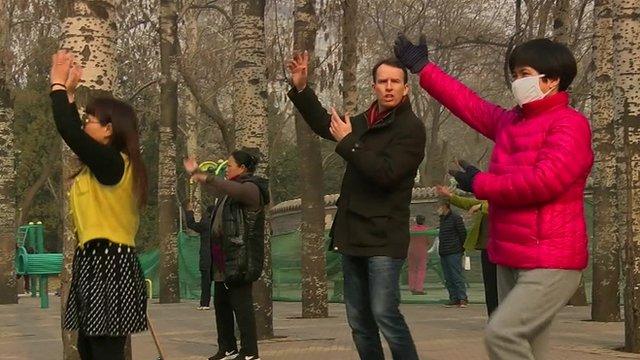China columnist Jia Jia 'goes missing' en route to HK
- Published

Apple Daily, a newspaper based in Hong Kong and Taiwan, has reported on Jia Jia's disappearance
A Beijing-based columnist has gone missing while on his way to Hong Kong, his lawyer has told the BBC.
No-one has had contact with Jia Jia since Tuesday night when he was set to board his flight. His wife has reported him missing.
He is said to have warned an editor friend about publishing an anonymous letter calling for President Xi Jinping's resignation.
The letter appeared on a state-linked site but was swiftly taken down.
It is unclear who authored the letter, which had the byline "loyal Communist Party supporters". Mr Jia had reportedly insisted he had no connection to the letter.
The incident appears to be the latest in a string of high-profile censorship incidents, amid a ramp-up of state campaigns aimed at burnishing Mr Xi's image.
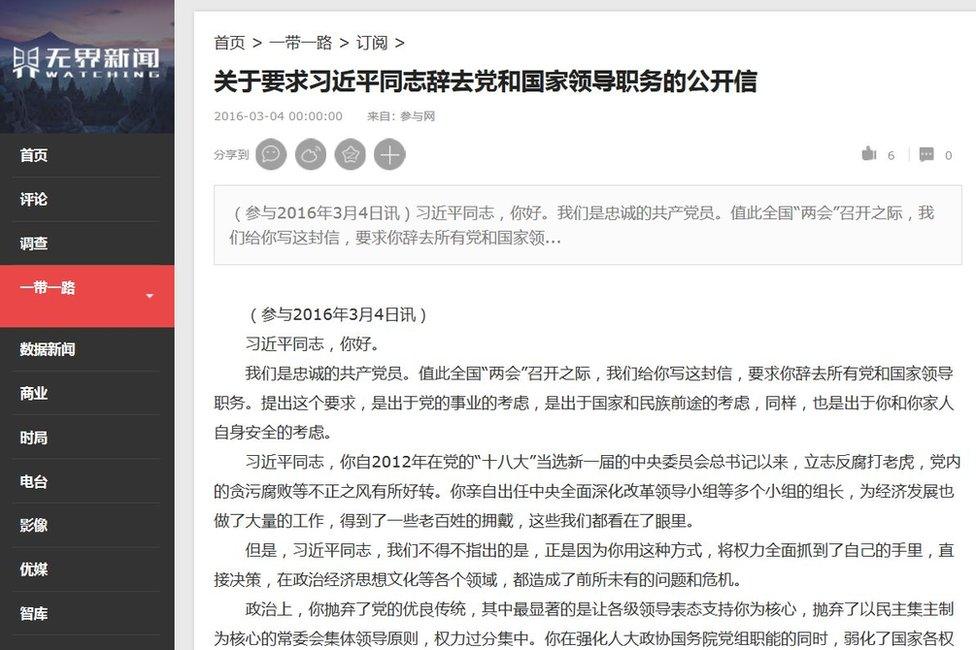
The letter had accused Mr Xi of creating a "personality cult"
What we know
Mr Jia, who is in his 30s, is known for writing commentaries for the online news portal Tencent. He was due to fly from Beijing to Hong Kong on Tuesday when he became uncontactable.
The newspaper Apple Daily quoted Mr Jia's wife as saying she last spoke to him at 20:00 local time on Tuesday, and he told her he was about to board the plane to Hong Kong.
She added that Mr Jia was due to arrive at a friend's home that night, but he never arrived. He also missed a lunch appointment the next day.

An excerpt from the letter
"On the cultural and ideological front, you [President Xi] have emphasised 'party-surnamed media' [an official campaign to get all media to toe the party line], and have disregarded the citizen aspect of the media, stunning the whole nation; you supported... low-standard people to become our literary representatives, disappointing the workers in the larger literary world; you have condoned cultural units in directly singing your praises; your wife Peng Liyuan's sister took over the producing duties of the CCTV Spring Gala, causing everyone's beloved and anticipated programme to become your personal propaganda tool.
Your condoning of a personality cult, not allowing 'rash opinions of central leadership', creating a 'one voice party' method - those of us who have gone through the Cultural Revolution can't help but feel secretly worried - our party, country and citizens cannot go through yet another 10-year catastrophe!"

His lawyer, Yan Xin, told the BBC: "We don't have any clue who took him away and why... there is [a] great possibility that he was taken away from the airport."
"His wife has not received any official document on Jia Jia's whereabouts and status."
Mr Yan added that attempts to find Mr Jia's flight booking record had failed, and he and Mr Jia's wife were checking with immigration authorities.
The letter in question raised eyebrows when it appeared on the state-linked news site Watching, also known as Wujie News, on 4 March.
Addressed to Mr Xi, it called for him to step down, accusing him of gaining "excessive power" and creating a "personality cult", and ran through a list of criticism of his rule ranging from his diplomatic policies to his economic decisions.
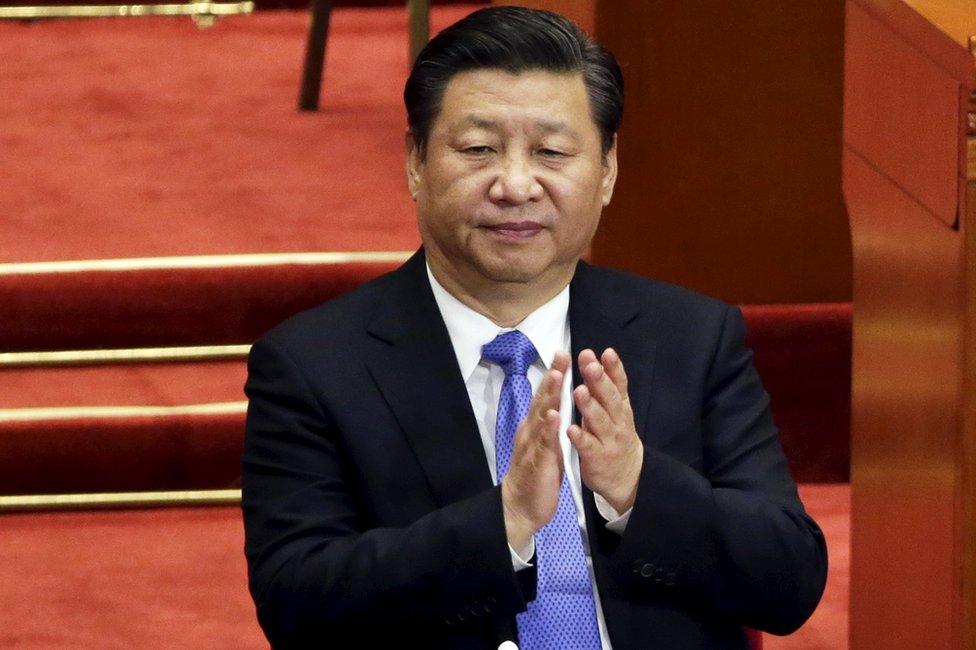
Mr Xi was most recently seen at the closing of the annual meetings of China's advisory and legislative bodies earlier this week

Analysis: John Sudworth, BBC News, Beijing
Apart from the whereabouts of the missing blogger apparently caught up in all of this, the big mystery is how on earth the letter appeared on a Chinese news website in the first place.
That people may hold these kinds of views is entirely possible, of course. But that anyone might take the risk of openly publishing, on a government-backed website, a call for the Chinese President's resignation would be extraordinary.
That's why there is speculation that the website was hacked in some way.
The Chinese authorities will, we can be certain, be trying to find out the truth, although probably not with a view to sharing the results of that investigation with the outside world.

Mr Jia is said to have cautioned his friend Ouyang Hongliang - an editor at Watching - after he saw it published.
The BBC tried to contact Mr Ouyang on his mobile phone but he could not be reached.
A colleague at Watching told the BBC that those involved with the letter's publication were "under investigation".
Watching stated it had reproduced the letter from another site, Canyu, an overseas-based portal known for carrying articles critical of China's government.
Canyu's version of the letter is still online.
- Published15 March 2016
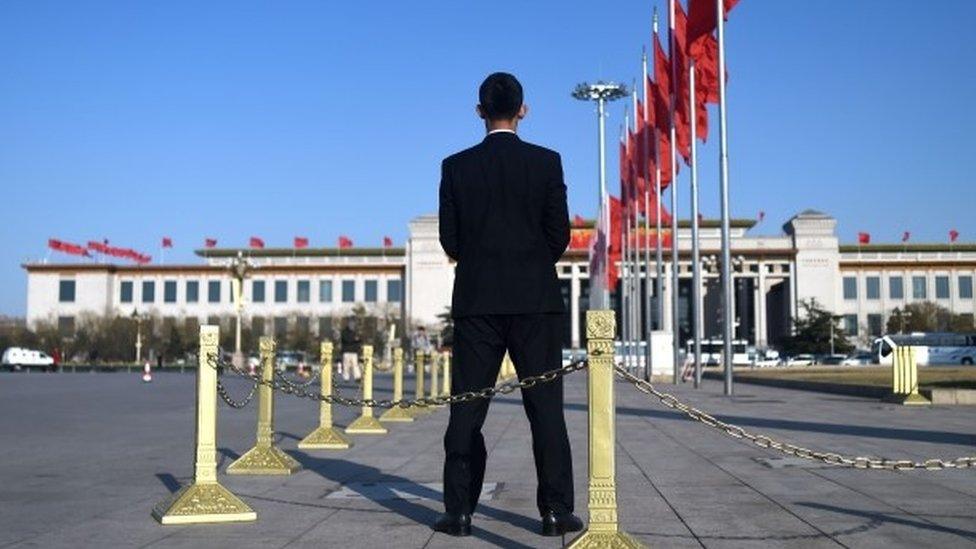
- Published23 February 2016

- Published28 February 2016
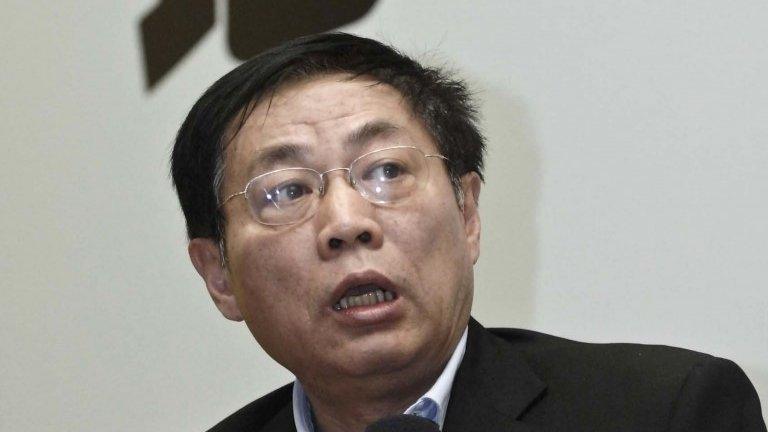
- Published9 March 2016

- Published16 March 2016
